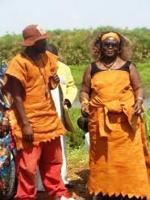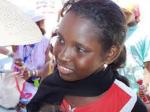Rwanda Business Questions and Answers
Rwanda Business Questions and Answers or Rwanda Frequently Asked Questions (FAQ) are answered on this page . Worry no more because we will answers any question you may ask about starting a business in Rwanda .
1. Where is Rwanda?
Rwanda is located at the heart of Africa. The country of Rwanda is situated in central Africa immediately south of the equator between1°4’ and 2°51’ south latitude and 28°63’ and 30°54’ east longitude.
Its total area of 26,338 square kilometres is bordered by Uganda to the north, Tanzania to the east, the Democratic Republic of the Congo to the west, and Burundi to the south. Landlocked, Rwanda lies 1,200 kilometres from the Indian Ocean and 2,000 kilometres from the Atlantic Ocean.
Rwanda is in the Central African Time Zone (GMT + 2). It has an average elevation of 2740m above sea level
Source: National Institute of Statistics of Rwanda (Demographic and Health Survey 2005)
2. Who Governs Rwanda and How Is She Governed?
Rwanda is a republic, governed by an executive, a legislative and a judiciary system.
The President who is the Head of State, a Prime Minister who is the Head of Government and the cabinet form the executive.
The President is democratically elected and holds office for a 7 year term
The 26 member Senate and the 80 member lower chamber of deputies is the legislative and provide oversight on government. The Senate is headed by the President of the Senate
The legislative is headed by the President of the Supreme Court. The president of the Supreme Court is elected by the Senate for an eight year term
Rwanda strives at Good Governance as one of the pillars for development and volunteered to be evaluated by the New Partnership for African Development (NEPAD) peer review mechanism for good governance.
Rwanda strives for a decentralized, non-corrupt government with a private sector driven economy and a social structure that is inclusive of all that reside in it.
3. How has the Rwandan Economy Performed?
The Economy grew by 11% in 2008. GDP at current prices grew by an estimated 30% and GDP per capita growing at 27% during the same period from. Preceding this, the economy has managed to maintain an average growth of over 8% for the 10 years 1996 to 2005.
The Government of Rwanda’s fiscal policy is aimed at strengthening and consolidating macroeconomic stability while providing adequate resources to the productive and social sectors in line with the country’s Economic Development and Poverty Reduction Strategy (EDPRS).
Sources: National Bank of Rwanda (Economic Performance Data) and Africa Development Bank/OECD 2008 (African Economic Outlook-Rwanda)
4. What is the country’s position on foreign investment and foreign investors?
Rwanda’s government encourages foreign investment and offers the same protection to foreign investment that it offers to local investors.
The country places no restrictions unique to foreign investors in terms of nature of investment, sector of investment, mandatory co ownership of investment projects with local investors and repatriation of profits and foreign exchange controls.
The government strongly encourages export driven foreign investment and has put in place incentives for foreign investors.5. What is the population size and demographical characteristics of Rwanda?
Population size
Rwanda has a population of 9.3 million people (2008 est.). In 2002, the Rwanda General Population and Housing (RGPH) Census estimated a population growth of 2.6 %Source: Ministry of Finance and Economic Planning (MINECOFIN)
Languages Spoken
There are three national languages widely spoken in Rwanda and these are Kinyarwanda, French and English.
Age
An estimated 54.6% of the total population of Rwanda is between the ages of 10 and 44. With 32.8% of the population being below 10 years of age and the remaining being 45 yearsSource: National Institute of Statistics of Rwanda – Health and Demography Survey 2005
Gender
52% of Rwandans are women and 48% are men.Source: National Institute of Statistics of Rwanda – Health and Demography Survey 2005
Religious Affiliations
Majority of Rwandans are Christians with Roman Catholics having the largest representation. However, the constitution protects an individual’s right to practice their religion in a manner consistent with their beliefs.
Under Article 33 of Rwanda’s Constitution “Freedom of thought, opinion, conscience, religion, worship, and the public manifestation thereof is guaranteed by the State in accordance with conditions determined by law.
RWANDA DEVELOPMENT BOARD/ BUSINESS OPERATIONS SERVICES
6. What is RDB Business Operations and Services (BOS)
RDB
The Rwanda Development Board is an institution mandated by the Government to fast track the development of the country by promoting investment, boosting tourism and fast tracking the technological advancement of the country and development of the ICT sector.
RDB Business Operations and Services
RDB Business Operations and Services represents a core division of the organization that performs, among other business, the responsibilities of the former Rwanda Investment and Export Promotion
Other Reasons Why to Start Business Here
East African Community› |
Investment Treaties › |
Rwanda Governance › |
Rwanda Business Environment › |
Investment in Rwanda › |
Rwanda Business in General › |
Protection of Investment in Rwanda › |
Rwanda Business Questions and answers › |
Recent Articles
-
Garam Masala Appetizers ,How to Make Garam Masala,Kenya Cuisines
Sep 21, 14 03:38 PM
Garam Masala Appetizers are originally Indian food but of recent, many Kenyans use it. Therefore, on this site, we will guide you on how to make it easily. -
The Details of the Baruuli-Banyara People and their Culture in Uganda
Sep 03, 14 12:32 AM
The Baruuli-Banyala are a people of Central Uganda who generally live near the Nile River-Lake Kyoga basin. -
Guide to Nubi People and their Culture in Kenya and Uganda
Sep 03, 14 12:24 AM
The Nubians consist of seven non-Arab Muslim tribes which originated in the Nubia region, an area between Aswan in southern








New! Comments
Have your say about what you just read! Leave me a comment in the box below.